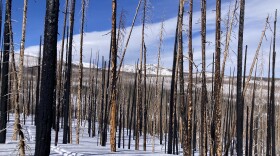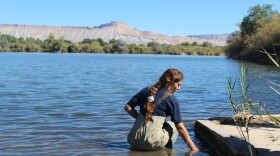-
Arizona and the six other states that use the Colorado River do not have a new plan to share the shrinking water supply.
-
Four states, including Colorado, came up with a plan in 2019 to dodge dangerously low reservoir levels at Lake Powell. That plan expired Dec. 31. Listen to "Morning Edition" host Michael Lyle, Jr. discuss this article with Colorado Sun Editor David Krause and then read the entire story at the link below.
-
A majority of House Republicans voted to uphold President Trump’s veto of the Finish the Arkansas Valley Conduit Act.
-
Trump vetoed a bill that would have provided funding to complete a pipeline to carry clean water to communities in southeastern Colorado.
-
Large farms in parts of the Colorado River Basin are paying little — and in some cases nothing — for federally supplied water, even as cities and residents are being asked to conserve, according to a new report.
-
For decades, communities in southeastern Colorado have been waiting to get clean drinking water through the Arkansas Valley Conduit.
-
New research shows that mountain regions around the world are warming faster than the lowlands below them. Scientists say that could have big consequences for the Mountain West, where communities rely on snow and ice for their water supply.
-
A 2023 Supreme Court ruling, along with new interpretations from the Trump administration, have limited protections for rivers and wetlands. Colorado is looking to fill in that gap with its own regulatory program.
-
As blazes expand to higher elevations, the impacts cascade downstream.
-
To limit damage Colorado Parks and Wildlife has been increasing its efforts to detect the bivalve since it was first discovered in the state in 2022.

Play Live Radio
Next Up:
0:00
0:00
Available On Air Stations










